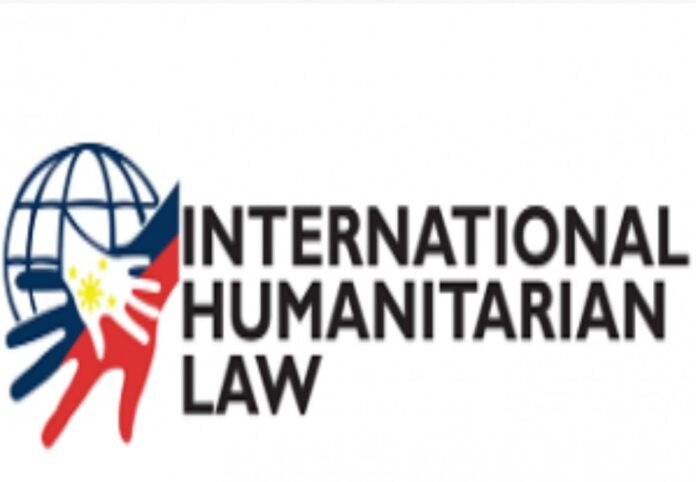The development of international humanitarian law can be traced back to ancient civilizations, where there were some rules and customs that were followed during armed conflicts to protect civilians and prisoners of war.
In Islam, particularly, there is a sophisticated Humanitarian law which has been in force for over 14 centuries. it is unfortunate that there are allegations against Muslims accusing them of terrorism. Humanitarian law is found in a significant portion of Sharia books, and a party with integrity can examine it. However, it was not until the 19th century that the concept of international humanitarian law started to take shape in the Western countries.
In 1864, the first Geneva Convention was signed, which established rules for the protection of wounded soldiers and medical personnel during times of war. This was followed by other conventions, which expanded the scope of protection to prisoners of war and civilians during times of armed conflict.
The International Committee of the Red Cross (ICRC) played a key role in the development of international humanitarian law, working with governments and other organizations to draft and implement these conventions.
In the years following World War II, there was a renewed effort to strengthen international humanitarian law. In 1949, four Geneva Conventions were signed, which updated and expanded the protections offered by the previous conventions. These included protections for civilian populations, wounded and sick soldiers, and prisoners of war.
In addition to the Geneva Conventions, there have been several other treaty agreements and protocols that have further developed international humanitarian law. One of the most notable of these is the Rome Statute of the International Criminal Court, which established the ICC as a permanent court to prosecute individuals for war crimes, crimes against humanity, and genocide.
Today, international humanitarian law continues to evolve as new challenges and conflicts arise. The ICRC and other organizations continue to work to ensure that these laws are respected and upheld by all parties engaged in armed conflict.
The concern over the Russian invasion of Ukraine raised serious allegations that the Russian government had violated international humanitarian law. Many countries expressed their outrage at the actions taken by Russia, seeing them as a breach of the principles established by international law.
The violation of international humanitarian law during the conflict included indiscriminate attacks on civilian areas, the targeting of hospitals and schools, the use of prohibited weapons, and the forced displacement of civilians. These actions were seen as clear violations of the principles outlined in the Geneva Conventions and other international treaties.
In response to these allegations, there were calls for accountability and justice. The International Criminal Court (ICC), as an institution established to prosecute individuals for war crimes, crimes against humanity, and genocide, came into the spotlight. As a result, there were demands for the ICC to issue a warrant for the arrest of Russian President Vladimir Putin, holding him responsible for the alleged breaches of international humanitarian law.
It is important to note that the ICC can only exercise jurisdiction over crimes committed on the territory of states that have ratified the Rome Statute or when the accused is a national of such a state. As Russia is not a party to the Rome Statute, the ICC does not have direct jurisdiction over actions committed by Russian officials, including the President.
Nonetheless, the allegations against Russia have led to ongoing diplomatic and legal challenges. Various international bodies, such as the United Nations and the European Court of Human Rights, have addressed the situation and have sought to hold Russia accountable for potential violations.
The episode highlights the importance of international humanitarian law in ensuring the protection of civilian populations during armed conflicts. It also emphasizes the need for robust mechanisms to address violations, provide justice, and prevent future breaches of these laws.
Meanwhile, regarding the topic of collective punishment suffered by Palestinians and indiscriminate bombing of Gaza, it is important to note that international responses to these events can be influenced by various factors, including political interests, alliances, and international agreements.
The issue of the Israeli-Palestinian conflict is deep-rooted historical and political contexts. The actions of the Israel Defense Forces (IDF) towards Palestinian populations have been subject to various criticisms and scrutiny from international organizations and human rights groups.
Regarding potential double standards in international responses to the conflict, it is vital to acknowledge that the diverse array of voices and interests involved can contribute to unequal treatment or to the perception of such inequality. Critics have argued that certain countries or international organizations may be more vocal in condemning one side’s actions over the other based on political or strategic considerations.
It is unfortunate that many civilians are being affected by the indiscriminate bombing in Gaza, resulting in unnecessary suffering for over two million civilians. It is baffling that the US and European countries, who are involved in promoting international humanitarian law, appear to be undermining their position by not fully supporting these laws. The end.
Mohamed Mohamoud Adde is an academic and a political Analyst specialising in offering expert analysis, insight and recommendations on Political developments.


